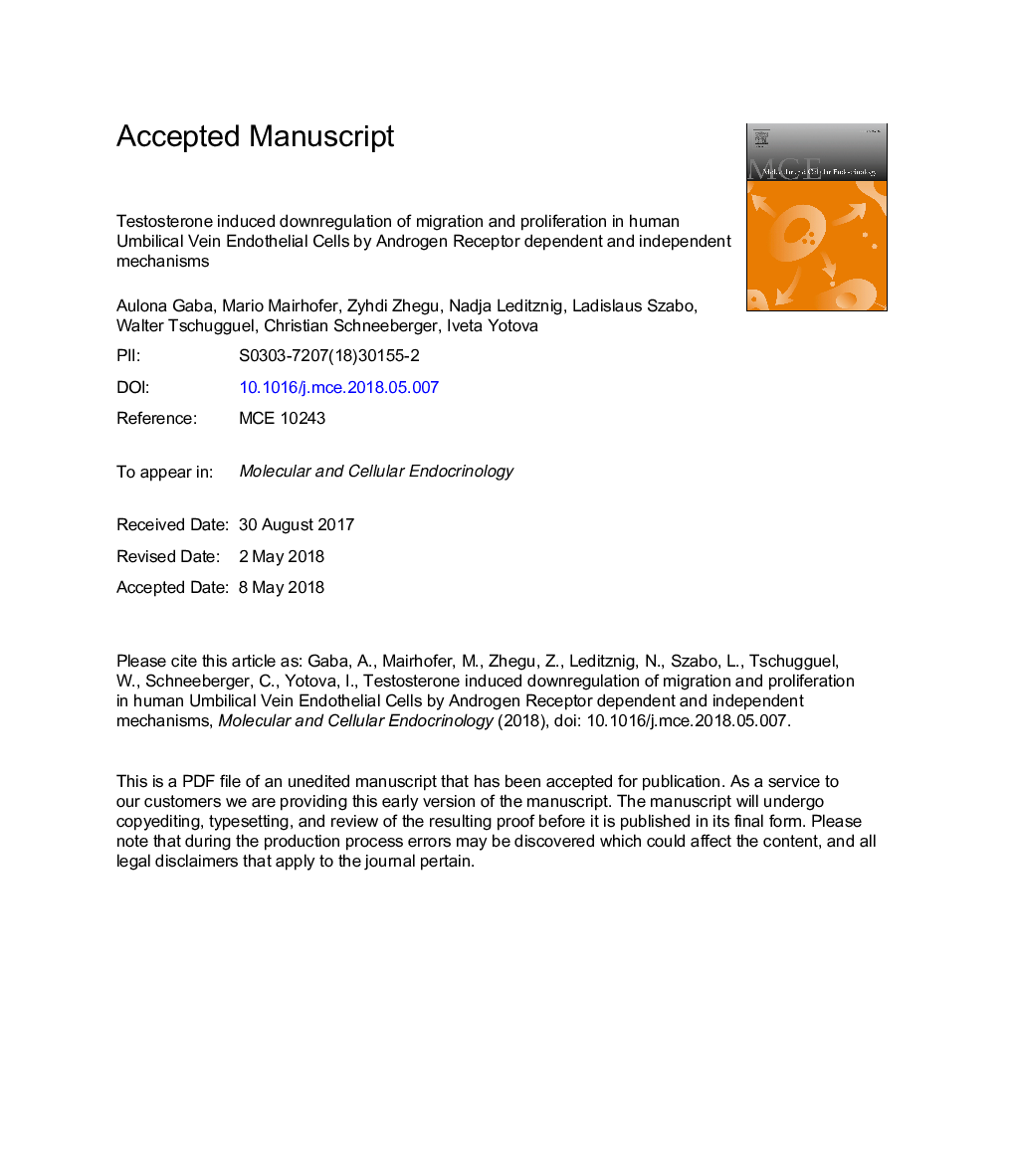| Article ID | Journal | Published Year | Pages | File Type |
|---|---|---|---|---|
| 8956337 | Molecular and Cellular Endocrinology | 2018 | 41 Pages |
Abstract
Recent research has emphasized the potential unfavorable effects of declining testosterone (T) levels in men and the putative beneficial effect of androgen therapy in select women. Some controversy surrounding the mechanism of action and the effects of T on endothelium remains. In this study, we evaluated the mechanism of T action on pooled primary Human Umbilical Vein Endothelial Cells (HUVEC) of mixed gender by focusing on two important processes, proliferation and migration. In our in vitro model system, we found that only the supra-physiological dose of T affected these two processes irrespective of the ratio of male to female cells in the pools. At a concentration of 1â¯Î¼M, T downregulated the proliferation of HUVEC by inducing arrest in the G1 cell cycle phase in an Androgen Receptor (AR)-independent manner. We show that treatment with 1â¯Î¼Mâ¯T also induced downregulation of HUVEC migration. This process was AR-dependent and was associated with persistent phosphorylation of ezrin, radixin and moesin. Regardless of the mechanism of action, the treatment of HUVEC with both supra- and physiological doses of T was associated with posttranscriptional stabilization of the AR upon ligand binding.
Related Topics
Life Sciences
Biochemistry, Genetics and Molecular Biology
Cell Biology
Authors
Aulona Gaba, Mario Mairhofer, Zyhdi Zhegu, Nadja Leditznig, Ladislaus Szabo, Walter Tschugguel, Christian Schneeberger, Iveta Yotova,
